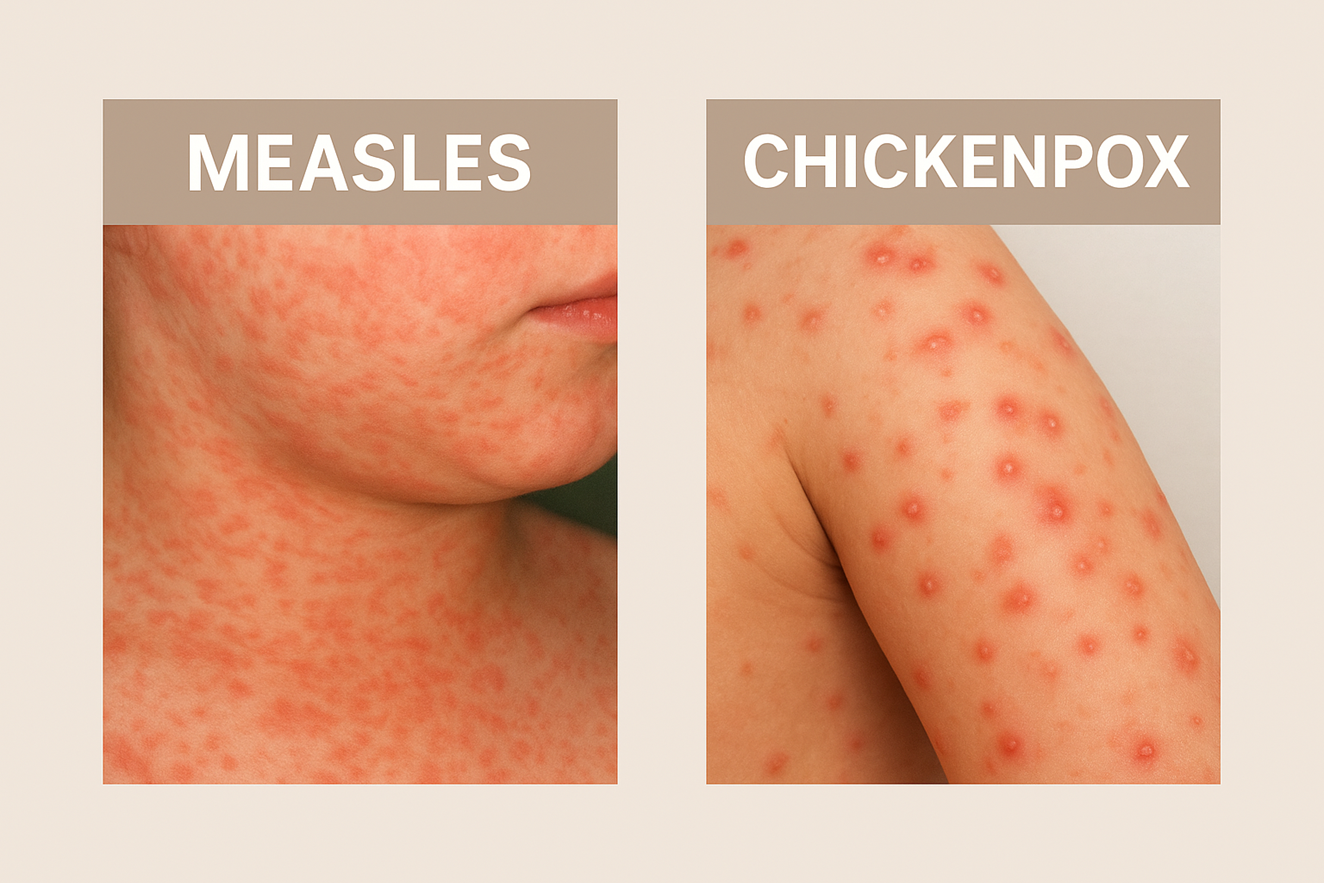Measles 101
Overview
Measles is more than a rash and fever that clear up in a few days. Measles can cause serious health complications, especially in children younger than five years old.
Measles is highly contagious. Nine out of 10 unvaccinated individuals may become infected if they come into contact with a person carrying the measles virus
The measles, mumps, rubella (MMR) vaccine provides the best protection against measles and gives long-lasting immunity.
Signs and Symptoms
Measles symptoms appear seven to 14 days after contact with the virus. Common measles symptoms include:
High fever (may spike to more than 104° F)
Cough
Runny nose (coryza)
Red, watery eyes (conjunctivitis)
Rash
Tiny white spots (Koplik spots) may appear inside the mouth two to three days after symptoms begin.
What's the difference between the measles and chicken pox?

How measles spreads
Measles is very contagious. It spreads through the air when an infected person coughs or sneezes. You can get measles just by being in a room where a person with measles has been. This can happen even up to two hours after that person has left.
What you can do
A measles vaccine is available. The CDC recommends the best way to protect against measles is the measles, mumps, and rubella (MMR) vaccine.
For more information about measles testing or vaccination, contact Panhandle Health District via phone or text at (208) 415-5270.
You may also talk to your healthcare provider about the MMR vaccine, especially if planning to travel.
